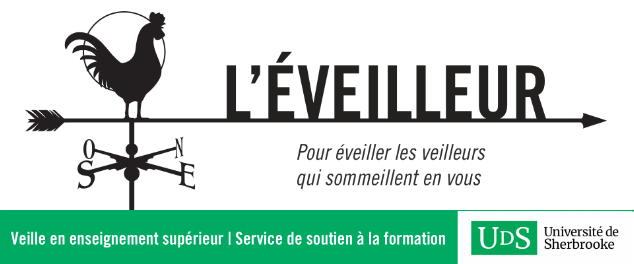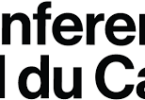(Un immense merci à mes collègues Francheska, Véronique, Sonia et Marc qui m’ont tous nourri de sources sur cette thématique).
Remarquons d’abord que l’on ne s’entend pas sur le point de passage d’une génération à l’autre. Alors que les Y sont la génération du “millénaire”, adolescents au tournant de l’an 2000, selon les auteurs les Z apparaitraient alternativement entre 1995 – l’année de l’arrivée d’Internet – et 2005. C’est même plus tôt pour Statistique Canada,
« …[L]es personnes nées depuis 1993 sont parfois identifiées comme la nouvelle génération Z ou la génération Internet puisqu’elles sont nées après l’invention d’Internet. Environ 7,3 millions de personnes (22 % de la population totale) nées entre 1993 et 2011 ont été dénombrées au Recensement de 2011. En 2011 ces personnes avaient 18 ans ou moins et commençaient tout juste à intégrer le marché du travail. » (Statistiques Canada, 2013)
Il est certain que l’appellation Génération Z est d’abord un produit du marketing, née avec le besoin de segmenter et de caractériser différentes tranches de consommateurs. Pour Sara DaVanzo, stratège culturelle en chef de l’agence New Yorkaise Sparks & Honey: “Many of our [client companies] are struggling with planning for the future in a world defined by chaos, volatility, uncertainty, ambiguity and change.” The idea of a Gen Z brand has been embraced by media as a kind of talisman for our hopes and fears. (Kingston, 2014) Rapidement, de telles segmentations générationnelles seront reprises par les spécialistes en ressources humaines, qui organisent leurs stratégies de recrutement et planifient l’intégration de cette nouvelle main-d’oeuvre dans les entreprises.
“Much of the current chatter surrounding Gen Z has been generated by the 56-slide presentation “Meet Generation Z: Forget everything you learned about Millennials,” produced by New York City advertising agency Sparks & Honey.” (Kingston, 2014)
Des chiffres – et des étiquettes – provenant de cette étude marketing marquante:
- engagés: 60 % des jeunes de la génération Z veulent des emplois avec un impact social, comparativement à 31 % de la génération Y. 26 % des adolescents Z américains feraient du bénévolat.
- entrepreneuriaux: 72 % voudraient lancer leur propre entreprise. Toutefois, certaines sources mettent en doute ce profil parce que les Z seraient aussi peu attirés par le risque:
« …[T]he participants in our study all claimed to be aiming for jobs in growing, less-automatable fields like education, medicine, and sales. And they’re obsessed with developing contingency plans to help them navigate the dynamic job market. While the media has singled out a number of high-profile entrepreneurial teen success stories, the majority of Gen Z in our study are biased in favor of career and financial stability. » (Finch, 2015)
- prudents et conservateurs: 56 % seraient économes plutôt que dépensiers. Ils seraient moins portés vers la consommation importante de drogue, d’alcool ou la sexualité précoce.
- tolérants: plus ouverts que les Y à la diversité raciale, sexuelle et générationnelle, moins susceptibles de souscrire à des modèles genrés traditionnels. (Kingston, 2014)
Certaines caractéristiques annoncées sont cependant intéressantes pour l’enseignement. Qu’elles se matérialisent ou non, il peut valoir la peine d’en prendre connaissance. Ainsi, en tant que génération n’ayant pas connu un monde sans Internet, ils auraient un rapport particulier avec la technologie. Son utilisation doit absolument être signifiante:
« Generation Z students don’t want you to use technology in ways that are not meaningful or central to their lives. They want to see that you can incorporate technology or acknowledge technology in ways that make you think differently and consume information differently.
Generation Z students use technology to solve problems, help them think deeply about issues related to economy and ecology, and want to participate through the use of technology to provide answers for world issues. » (Cook, 2015)
Par ailleurs, le temps d’attention des Z aurait encore diminué. Ils en seraient à des changements de canaux aux 8 secondes! Certains s’en inquièteront, d’autres y voient une capacité exceptionnelle de filtrage de l’information:
“Gen Z have a carefully tuned radar for being sold to and a limited amount of time and energy to spend assessing whether something’s worth their time. Getting past these filters, and winning Gen Z’s attention, will mean providing them with engaging and immediately beneficial experiences. One-way messaging alone will likely get drowned out in the noise. » (Finch, 2015)
Ils auraient un rapport ambivalent avec les médias sociaux. D’un côté, ils doivent maintenir leur “marque personnelle” et aller chercher renseignements et validations sur les réseaux. D’un autre, ils réaliseraient l’importance des rapports en personne, notamment avec les adultes dans le monde du travail: “Between these two forces, Gen Z feel torn: […] They seek social validation and inclusion but are looking to differentiate themselves professionally.» (Finch, 2015) Mais l’accès aux réseaux leur ouvre le monde. Ils ont des contacts un peu partout sur la planète:
“Despite their obvious technology proficiency, Gen Zers seem to prefer in-person to online interaction and are being schooled in emotional intelligence from a young age. Thanks to social media, they are accustomed to engaging with friends all over the world, so they are well prepared for a global business environment. » (Levit, mars 2015)
Ils seraient à la recherche d’expériences de travail concrètes, allant jusqu’à effectuer des stages en entreprises dès le secondaire:
« Gen Z is already out in the world, curious and driven, investigating how to obtain relevant professional experience before college. […] Even well-known organizations will have to rethink their recruiting practices to attract this group, and now is the time to start. Those who want to take advantage of Gen Z talent in the future need to develop relationships today with teenagers in grades seven through 12. Get into their schools, provide mentorship and education, and put yourself in a position to help shape their career decisions. They are eager to listen. » (Levit, mars 2015)
Le corollaire, c’est une certaine méfiance vis-à-vis l’institution universitaire et l’apport tangible qu’elle peut avoir sur leurs futures carrières. Dans un marché de l’emploi où les connaissances changent constamment, où la plupart des professions qui seront pratiquées n’existent pas encore, la pertinence de l’université est à revaloriser:
« The idea of “lifelong learning” won’t be a option, it will be a necessity, says Toronto futurist Richard Worzel, author of Who Owns Tomorrow? 7 Secrets for the Future of Business. […]
A degree will be fantastic for getting you in the door the first time, but after that it’s a matter of, ‘What can you do for me?’” says Mr. Worzel. […]
Because of the massive disruptions in so many industries, simply gathering knowledge during your university career won’t cut it, he says.
“Unless somebody is creative, intuitive, innovative, regardless of what field they are in, they risk being displaced by a computer,” he says.” (White, 2015)
Ils sont prêts à fréquenter l’université, mais pour d’autres raisons: « …[M]ost say they would like to attend college for the social connections and network. Not for the vocational skills or credential they may receive – there are many choices for degrees. » (Cook, 2015)
Est-ce que l’université ne doit pas se réinventer pour tenir compte de ces nouveaux besoins des apprenants? Certaines universités canadiennes croient que oui:
“The role of higher education will be less about just imparting knowledge and more about providing high-quality feedback to students as they develop the areas of cognitive ability that will be essential in a new, high competitive world, says Dr. [Susan] McCahan [vice-provost of innovations in undergraduate education at the University of Toronto].
“Creativity, critical thinking, the ability to design unique solutions to problems, teamwork, communication,” she says. “We’re increasingly understanding that those kinds of transferable abilities are as important as the topic we are teaching.” » (White, 2015)
L’enseignante à la retraite et blogueuse australienne Erica McWilliam estime que le professeur devra trouver une position mitoyenne, qui s’ajoutera à la présentation magistrale et à l’accompagnement d’activités pratiques. C’est ce qu’elle appelle “Meddler-in-the-Middle”:
« Some teachers can’t get beyond the role of ‘Sage-on-the-stage’, despite the now decades-old advocacy of ‘Guide-on-the-side’ as more pedagogically enlightened. Yet, while both ‘Sage-on-the stage’ and ‘Guide-on-the-side’ have their place in the complex landscape that is teaching, there is a further shift of gears needed for Gen Z teachers – that of ‘Meddler-in-the-Middle’. […] Meddler-in-the-middle is both interactive and interventionist, positioning the teacher and student as mutually involved in assembling and dis-assembling cultural products. The teacher is in there doing and making mistakes alongside students, not just moving like Florence Nightingale from desk to desk or chat room to chat room, watching, encouraging and monitoring. Meddling is a re-positioning of teacher and student as co-directors and co-editors of their social world. As a learning partnership, meddling has powerful implications for what ‘content’ is considered worthy of engagement, how the value of the learning product is to be assessed, and who the rightful assessor is to be. » (McWilliam, 2015, notre emphase)
Sources –
Cook, Dr. Vickie S., “Engaging Generation Z Students“, University of Illinois Springfield, Center for Online Learning, Research & Service [2015]
Duez, Emmanuelle, “Une génération qui n’a peur de rien” (vidéo), présentation au Positive Economy Forum, Le Havre, septembre 2015 (15 min 31)
Finch, Jeremy, “What Is Generation Z, And What Does It Want?“, Fast Company, 4 mai 2015
Hammer, Kate, “Educating Generation Z“, Innovation.ca (Canada Foundation for Innovation), 25 août 2015 (article publié à l’origine en août 2014)
Kingston, Anne, « Get ready for Generation Z », Maclean’s, 15 juillet 2014
Levit, Alexandra, “Make Way for Generation Z“, New York Times, 28 mars 2015
Levit, Alexandra, “The Future of Education According to Generation Z“, Ideas – Time Magazine, 6 avril 2015
Martel, Laurent, France-Pascale Ménard et al., “Les générations au Canada“, Statistiques Canada, 18 décembre 2013
McWilliam, Erica, “Teaching Generation Z“, (blogue éponyme), 19 février 2015
Normandin, François, “La génération Z… Qui sont-ils? Que veulent-ils?“, Revue Gestion, HEC Montréal, [sans date… Hiver/printemps 2015?]
Sparks & Honey, ““, Slideshare, 17 juin 2014
White, Shelley, “The Generation Z effect“, The Globe and Mail,






